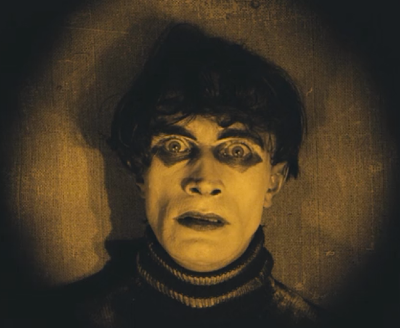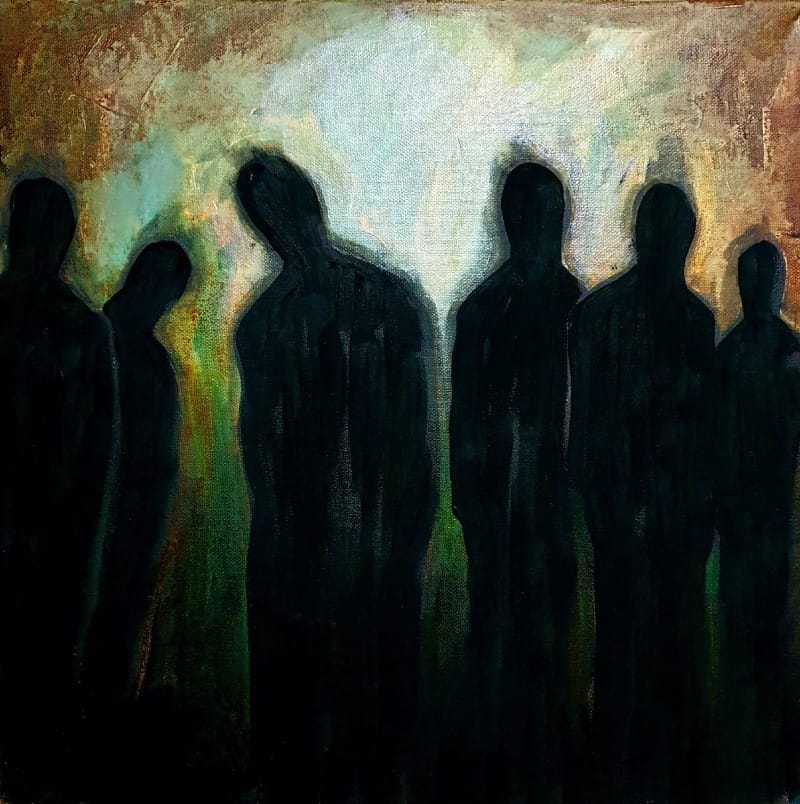Hollywood has devised a new form of kinesics that can never be truly replicated in the real world. In the application of these patterns, we have invented new modern ideals tailored only to the body. This is modern material spiritualism, chained to the body.
Why do we ignore the facts of spectating cinema? We know it not to be true, and we know it to be a second-hand production of life, and yet we spend our time watching it. Inside, the actors deliver patterns of ideals that are retracted from the psycho-economic life of man—his historical reference, his ancestral pride, and his modern soul. But they themselves also must abide by these laws of receiving ideals. This is the god complex division of cinema. The actor delivers ideals, the actor must abide by the same ideals. How can the actors be the deliverers of ideals yet also the worshippers of them? Here we find ourselves struck by the illogical contradiction of modern cinema.
Cinema is a deranged god complex. The spirit of cinema is an egotistical current that is based purely on lies. It can never be true, even if the story is about a true event. The act of filming and acting is ritual, and thus it is a stab in the dark at all costs.

There are universal rules specific to the actor that have subordinate value over the more truthful aspects of the actor's conscious social capabilities. The actor has become an actor. We have been deceived into viewing actors as people playing characters. Notice how every character is aesthetically unique from every other character, yet all perform under the same instruction, following the same rules and with the same value, as if there is an absolute general rule to acting rather than to the techniques used to act. In this realm of art, cinema is a vital conduit that enables immediate confrontation with the unconscious. Both parties—actor and spectator—gain the same intimacy. Yes, the actor is unleashing the character's spirit within them, and we applaud this, regarding it as the pillar of our entertainment. Yet, every single character is bound by the same principles.
As the actor performs his role, both the audience and the actor are watching the performance. Even if the actor is not self-conscious and is rather 'living in the moment,' it is still not acceptable to believe that both parties are not watching something take place. For the actor, it is happening inside of them and is being shown outwardly, coming from within. For the spectator, they are watching it be performed from within, expressed outwardly, while the unravelling performance occurs within them. Thus, we say, "I really feel the passion; this is a great actor."
However, every scene in Hollywood shares absolute principles—but why? Who made the rules for performing characters? Surely true mastery of being an actor enables the character inside to spontaneously influence and steer the soul of the actor. This dilemma, with its subordinations of expression, has contributed to the divide between actor-celebrities and the general populace, the spectators.
The old truth that people 'looked up' to their favourite movie icons is simple: it isn’t only that they display status polished with authenticity, power, sex appeal, and style. It is that they have displayed superior human function—the agility and mastery of their bodies as tools, conduits of articulated ancestral and modern souls. We scale and measure the best to the worst, and in between, we find our identities somehow hollowed out by the series of events the world of role-playing grants us access to.
Their skill to act is beyond attractive; it is the result of being summoned and declaring face-to-face contact with the hidden, more secretive parts of our identities. Why do we like this actor over others? Why do we prefer them in these types of films rather than others? What is this preference allocated to? This preference that we use as weaponry in conversation with our social networks, arguing over specific key features of the actors' roles and arcs in the storyline. This preference that leads us to develop like-minded traits in submission. Subservient radiation.
"The same reason the mime is our guide. We tacitly endorse his most poignant thesis: relinquishing the futile pursuit of control, we are implored to embrace silence as a conduit to self-discovery. In this silence, we confront the immutable truth: we are all voyagers adrift in the same cosmic vessel. It is not mastery over the cosmos that defines our essence, but rather a harmonious engagement with its turbulent currents." - www.theliftedveilblog.com/the-mime/
Acting and cinema are not the most sophisticated of art forms. The rules of acting throughout history, but particularly in modern-day acting, have created a diversion from our unifying spirituality as creatures framed in the divine, while sacrificing our integrity under the pressure of the fear of failure. And I posit it is for these reasons that we maintain the deception of cinema. Even the lazy film watcher who selects 'anything' to have on in the 'background' is still participating in the meaning game that cinema circulates around the self.
The process of making a film, even one gathered on evidence, is still not a demonstration of truth. The only way cinema could liberate itself from its desire to be true is to destroy the rules of cinema and have none. If this were to occur, cinema would collapse because the spectator demands illusion over truth. We watch cinema because we want to be lied to. The lies of cinema validate our daily struggle to attain the unattainable—our lives. We invent meaning from the stories because we want to maintain the vaudevillian aspects of everyday life.




